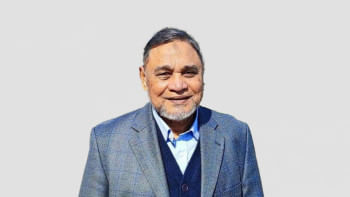Kosovo's Independence is the Only Viable Solution
When Muslims around the world were rejoicing in the Eid celebration, those in Kosovo were busy mourning their dead. The significance of the cold-blooded massacre of 45 Albanian Muslims in Kosovo extends well beyond the immediate brutality of that episode. The prospect of a political settlement between the Serb leadership of President Slobodan Milosevic and the ethnic Albanian leadership within the Yugoslavian statehood has been severely diminished.
Last October, the US and the NATO brokered a ceasefire in Kosovo. The western leaders hoped that Milosevic, threatened with the use of force, would agree to provide the ethnic Albanians in Kosovo some kind of autonomy. At the same time, they pressurised the Kosovo Liberation Army (KLA) to back down from its demands for complete independence, which the western alliance had refused to support.
But a quick series of events in the last few days has now jeopardised the mediation brought about by the western leaders. First, on Saturday January 16 Milosevic's goons murdered - and then mutilated the bodies of - 45 civilians in Kosovo. This incident was swiftly condemned by the NATO observers the next day. William Walker, head of the international monitoring mission in Kosovo, blamed the massacre on the Serbs.
But Milosevic came back on Monday with double slaps on the face of the international community. The Serbs blocked the entry into Kosovo of Louise Arbour, chief prosecutor of the international war crimes tribunal, and then expelled William Walker from Kosovo. NATO leaders continued to give every possible chance to the Serbs as it sent two top generals to meet Milosevic and deliver a message - withdraw the expulsion order of Walker and allow Arbour and her group to investigate the massacre of 45 civilians.
But it seems that Milosevic has read the NATO bluff and rejected their demands. However, on Thursday he made a policy u-turn and temporarily froze the expulsion order for William Walker. Meanwhile, Albania has called upon its citizens to fight side by side with the ethnic Albanians in Kosovo. The resulting impasse has created a sense of insecurity in the entire region.
Soon after last October's ceasefire in Kosovo, it became increasingly clear that Yugoslav President Slobodan Milosevic never intended to fulfil the terms of the agreement. Recognising the ambivalence of the western leaders and their reluctance to punish Serbia's atrocities with a military strike, Milosevic has felt free to continue his aggression. The Serb forces have carried out ethnic cleansing operation in Kosovo. The latest atrocities threaten the collapse of a shaky ceasefire.
The resumption of wartime atrocities in Kosovo is the inevitable result of the ambition and moral blindness of Yugoslav President Slobodan Milosevic. But the fault is not Milosevic's alone; his rampage in Kosovo has been encouraged by a failure of leadership and action by the Clinton administration and paralysis and cowardice within NATO.
Serbs consider Kosovo to be the cradle of their history and culture although 90 per cent of the province's 2 million people are ethnic Muslims from Albania. Yugoslav forces have killed as many as 2000 people in Kosovo since last February, when Milosevic began his campaign to put down an uprising there.
In recent months, the US government has given short shrift to places such as Kosovo, devoting its energies to protecting the president from impeachment and conviction. It rouses itself to gaze over the horizon only to deal with places like Iraq.
For its part, NATO remains immobilised by division within its member-countries. It routinely accepts the atrocities it claims to find "unacceptable", repeatedly warning or hinting of military reprisals, only to back down, thereby making a mockery of its words and encouraging more defiance and violence from Milosevic.
If there was ever a time for unity, it is now; and if there was ever a place for it, it is Kosovo. If NATO doesn't have what it takes to tame a power-hungry gangster in its own backyard, it ought to fold its tent and go away. And if the Clinton administration cannot muster the will power and attention needed to deal with mass murder in Europe, it will forfeit its obligation to the world community.
The western leaders including the US and NATO, and the UN are left with a choice. It can concede failure in Kosovo, leaving the two parties to resolve their differences through armed conflict. This would obviously mean that the Serbs, with superior military capability, would continue their massacre in Kosovo. Or the western leaders and the UN can decide to support the call for independence of Kosovo. Given the atrocities committed by Milosevic and his armed cadres, there would seem to be only one humane and rational choice - full-fledged independence for Kosovo.
The western leaders are reluctant to support the call for Kosovo's independence because they feel that it would mean more violence and also require redrawing the borders of what they consider to be an independent state - Yugoslavia. An appropriate response to such belief would be that Kosovo has already gone down the slippery slope of violence. Their misery in the hands of the Serbs will continue in the coming months. The only way to free them would be to give them a statehood where they could live in peace.
It is sad that the violence in Kosovo has continued for so long and has claimed so many innocent lives. But given where we stand now, supporting the independence of Kosovo is the only way to send an unequivocal message to Milosevic that the massacre of the innocent won't be tolerated. That, however, would require a level of leadership and commitment among the world leaders that has so far been absent.

 For all latest news, follow The Daily Star's Google News channel.
For all latest news, follow The Daily Star's Google News channel. 



Comments